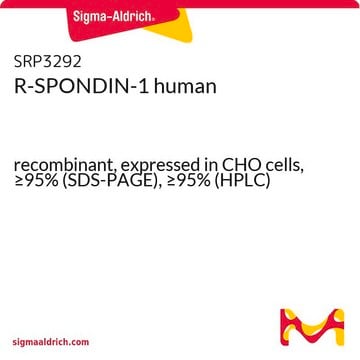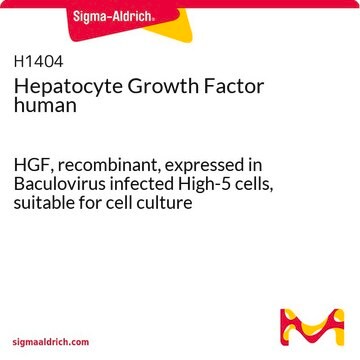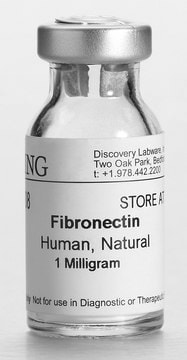H17001
Wnt3A, human
recombinant, expressed in HEK 293 cells human
Synonym(s):
Wnt, Wnt-3A
About This Item
Recommended Products
recombinant
expressed in HEK 293 cells human
Assay
>90% (SDS-PAGE)
form
powder
potency
≤20 ng/mL EC50
mol wt
38-42 kDa
impurities
<1 EU/μg endotoxin
storage temp.
−20°C
General description
Biochem/physiol Actions
Physical form
Reconstitution
Storage and Stability
Analysis Note
Storage Class Code
11 - Combustible Solids
WGK
WGK 3
Flash Point(F)
Not applicable
Flash Point(C)
Not applicable
Certificates of Analysis (COA)
Search for Certificates of Analysis (COA) by entering the products Lot/Batch Number. Lot and Batch Numbers can be found on a product’s label following the words ‘Lot’ or ‘Batch’.
Already Own This Product?
Find documentation for the products that you have recently purchased in the Document Library.
Articles
Discover answers to your frequently asked questions about animal component-free, xenobiotic-free, and chemically defined media and reagents for cell culture.
Discover answers to your frequently asked questions about animal component-free, xenobiotic-free, and chemically defined media and reagents for cell culture.
Discover answers to your frequently asked questions about animal component-free, xenobiotic-free, and chemically defined media and reagents for cell culture.
Discover answers to your frequently asked questions about animal component-free, xenobiotic-free, and chemically defined media and reagents for cell culture.
Our team of scientists has experience in all areas of research including Life Science, Material Science, Chemical Synthesis, Chromatography, Analytical and many others.
Contact Technical Service








